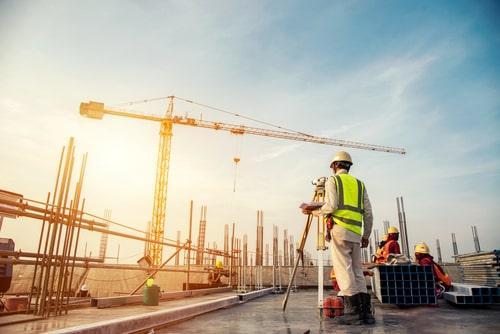Wheaton Office |
St. Charles Office |
Sycamore Office
 630-665-7300
630-665-7300
Sexual Harassment in the Construction Industry
 The construction industry is vital to our modern lives. Without construction workers, many of the buildings, roads, and structures that we use on a daily basis would not be standing. Unfortunately, this important industry is also plagued by a serious and pervasive problem: sexual harassment.
The construction industry is vital to our modern lives. Without construction workers, many of the buildings, roads, and structures that we use on a daily basis would not be standing. Unfortunately, this important industry is also plagued by a serious and pervasive problem: sexual harassment.
Exploring the Problem of Sexual Harassment in the Construction Sector
Most would agree that construction work is much unlike the office jobs that dominate today's typical workplace. Construction workers are often forced to work in close proximity to each other, climbing scaffolding or working on ladders in tight spaces. This can make some workers a little too comfortable when it comes to making inappropriate comments or touching other workers.
Furthermore, the construction industry is overwhelmingly male. Only about four percent of construction workers are women. Although sexual harassment can happen to anyone of any sex, sexual orientation, or gender expression, statistics show that sexual harassment is more common when there is a major disparity in gender within a workplace. One survey found that 66 percent of respondents claim to have experienced sexual harassment or gender bias while working in the construction industry.
Examples of Sexual Harassment on a Construction Site
The type of sexual harassment most prevalent on a construction site is hostile work environment sexual harassment. This type of harassment occurs when an individual's work environment is made intimidating, hostile, or offensive due to sexual comments, behavior, jokes, propositions, or the display of sexually explicit material. To meet the federal definition of a hostile work environment, the behavior must be "severe" or "pervasive." A single inappropriate joke or comment would likely not qualify, but a series of jokes, comments or other inappropriate behavior could. Workers who experience sexual language or behavior that makes them uncomfortable should report the behavior regardless of whether it has escalated to a severe or pervasive level yet.
Physical touching of a sexual nature or nonconsensual sexual activity should be reported immediately. This type of sexual harassment may also lead to criminal charges.
Quid pro quo sexual harassment is also a possibility on construction sites. This kind of harassment occurs when an employer or supervisor offers promotions, better work assignments, or other benefits in exchange for sexual favors.
Where to Get Help
If you are a construction worker who has experienced sexual harassment in the workplace, there are a few things you can do. First, report the harassment to your employer or supervisor in writing. Follow the reporting instructions in your company's employee handbook. The employer has a legal responsibility to investigate and take appropriate action to stop the sexual harassment.
If the employer does not resolve your complaint, the next step may be to file a claim with the Illinois Department of Human Rights and U.S. Equal Employment Opportunity Commission. If you are fired or otherwise retaliated against, you have the right to file a retaliation claim. You could be entitled to damages and other forms of relief.
Contact a Wheaton Sexual Harassment Attorney
Our DuPage County sexual harassment lawyers can provide dependable legal support throughout your sexual harassment case. Call us today at 630-665-7300 to schedule an Initial Attorney Meeting and learn more about how we can help you.
Sources:
https://www.ilga.gov/
https://www.enr.com/articles/


 Read More
Read More





